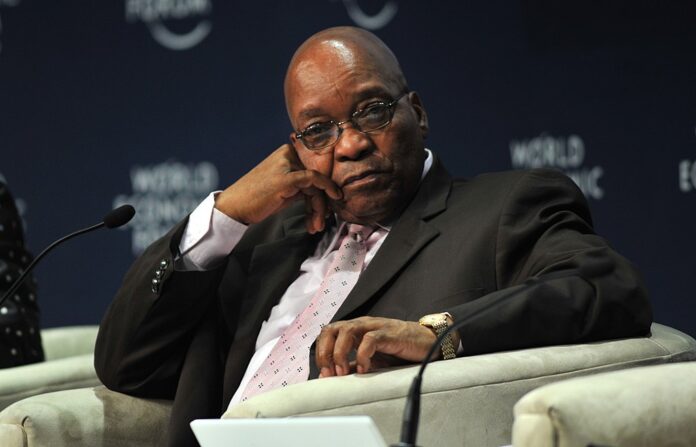The ANC National Disciplinary Committee’s decision comes after Zuma’s involvement with the uMkhonto Wesizwe Party, sparking further controversy
The African National Congress (ANC) has expelled former South African president Jacob Zuma following a disciplinary hearing that found him in breach of the party’s constitution. According to a leaked report, Zuma was expelled for violating ANC rules by supporting and campaigning for the uMkhonto Wesizwe (MK) party, which is viewed as a rival to the ANC.
The disciplinary hearing, conducted virtually last week, focused on two primary charges against Zuma. The first charge, related to Rule 25.17.17(4), involves prejudicing the ANC’s integrity by collaborating with a counterrevolutionary organization. The second charge, under Rule 25.17.13, concerns actions detrimental to the party’s objectives. Zuma was found guilty of the first charge due to his support for the MK party, which has been a significant player in South Africa’s evolving political landscape.
The ANC National Disciplinary Committee (NDC) comprised seven members, but only five votes were recorded in favor of Zuma’s expulsion. The members who voted for expulsion included Faith Muthambi, Nocawe Mafu, Robinson Ramaite, Vusi Pikoli, and Kerensa Millard. It is unclear if all NDC members were present during the decision-making process.
Zuma, who joined the ANC Youth League in 1959, has been a prominent figure in South African politics. The decision to expel him follows a period of intense political manoeuvring, including his involvement with the MK party, which emerged as a significant force in the 2024 provincial and national elections. The MK party surpassed the Economic Freedom Fighters (EFF) to become the third-largest party nationally and achieved the highest share of the vote in KwaZulu-Natal.
In January 2024, Zuma was suspended by the ANC National Executive Committee (NEC) under Rule 25.60 of the party’s constitution. This suspension did not provide Zuma an opportunity to respond, as the decision was deemed final. Despite this suspension, Zuma continued to support the MK party and accused President Cyril Ramaphosa of being an agent of “white monopoly capital.”
ANC Secretary-General Fikile Mbalula, a key witness in Zuma’s hearing, highlighted that Zuma’s actions were seen as a significant breach of party discipline. The ANC’s report emphasized that Zuma’s support for the MK party constituted a serious violation of the party’s principles.
The expulsion has sparked mixed reactions within South Africa. Zuma’s supporters view the decision as a political maneuver against him, while critics argue that it is a necessary step to maintain party discipline and integrity. Zuma now has 21 days to appeal the decision to the National Disciplinary Committee of appeal, a process that could further fuel the political controversy surrounding his expulsion.
Analysis
Political Perspective Jacob Zuma’s expulsion from the ANC represents a critical moment in South African politics, reflecting internal party dynamics and broader political conflicts. Zuma’s involvement with the MK party has intensified tensions within the ANC, illustrating the factionalism that characterizes the party’s current struggles. The expulsion underscores the ANC’s attempts to address internal dissent and maintain party discipline in the face of rising political competition from new and rival parties.
Social Perspective Zuma’s expulsion resonates with broader societal debates about political accountability and leadership. His support for the MK party and subsequent expulsion highlights issues of political loyalty and integrity. The decision also reflects public sentiments towards Zuma’s long and controversial political career. The expulsion may influence public opinion about both Zuma and the ANC, affecting how the party is perceived by South African voters.
Economic Perspective The political upheaval surrounding Zuma’s expulsion has potential economic implications. The political instability and factionalism within the ANC could impact investor confidence and economic stability. Zuma’s continued involvement in politics and his support for rival parties may also affect economic policies and reforms. The outcome of his expulsion may influence the ANC’s ability to navigate economic challenges and implement effective governance.
Gender Perspective While Zuma’s expulsion does not directly address gender issues, it is part of a broader political narrative that includes considerations of leadership and representation. The ANC’s handling of Zuma’s case reflects its approach to managing internal conflicts and addressing allegations against prominent figures. The involvement of female ANC members in the disciplinary process highlights their role in shaping the party’s response to such controversies.
Racial Perspective Zuma’s expulsion is part of a complex political landscape that includes racial dynamics. His leadership and the controversies surrounding his tenure reflect broader issues related to race, governance, and historical legacies in South Africa. The political and social reactions to his expulsion may be influenced by racial considerations and historical context, impacting how different groups perceive the ANC and its handling of Zuma’s case.
